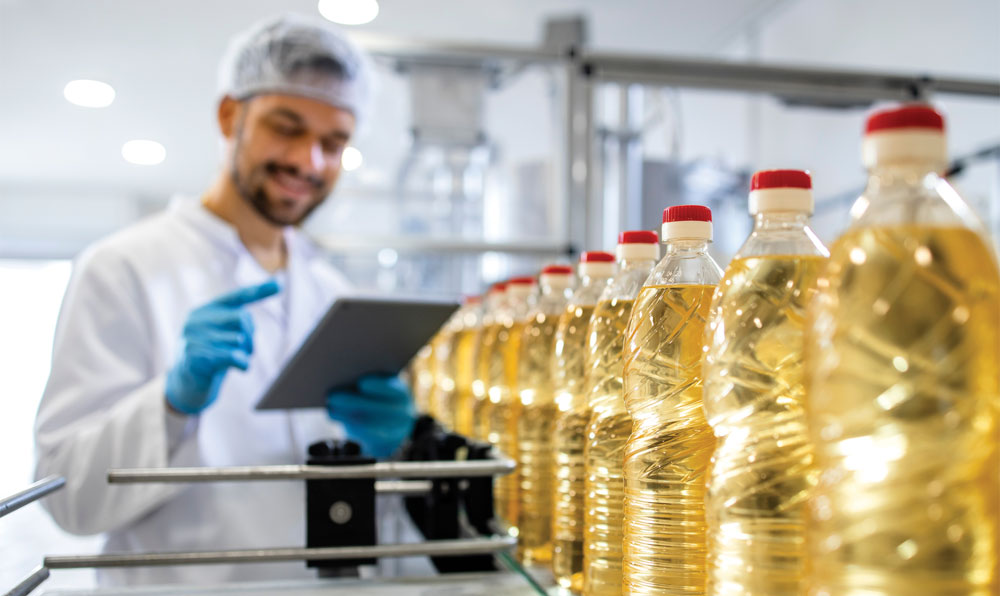



Via the Global Framework Principles of Sustainable Palm Oil
May, 2022 in Issue 1 - 2022, Sustainability
The Council of Palm Oil Producing Countries (CPOPC) has developed and launched the Global Framework Principles of Sustainable Palm Oil (GFP-SPO), which aims to provide a common language across different certification schemes being applied to palm oil production. It is anchored in the UN Sustainable Development Goals (SDGs) as its base.
The framework can also be used to value the contribution of palm oil toward achieving sustainable development in all producing countries, and to lay the foundations for the establishment of sustainability of a vegetable oils platform. This important document was adopted and approved by Ministers of CPOPC member-countries at their 9th Ministerial Meeting on Dec 4, 2021.
The GFP-SPO was officially launched on Feb 16, 2022, via a webinar. In attendance were representatives of CPOPC member-countries and observer countries – Indonesia, Malaysia, Colombia, Thailand, Ghana, Honduras, the Philippines, Sierra Leone and Papua New Guinea – as well as stakeholders in palm oil sustainability schemes.
At the launch, CPOPC Executive Director Tan Sri Dr Yusof Basiron asserted that palm oil contributes to the SDGs: “CPOPC believes that palm oil is a sustainable alternative to other vegetable oils such as soybean, rapeseed and sunflower across all the three SDG focus areas – social, economic and environmental.
“Therefore, the GFP will be used as a reference because its principles will draw and expand upon the current sustainable palm oil certification schemes, such the Indonesian Sustainable Palm Oil (ISPO) and Malaysian Sustainable Palm Oil, and provide guidance to future ones.”
Indonesia’s Deputy Minister for Food and Agribusiness, Coordinating Ministry for Economic Affairs, Dr Musdhalifah Machmud, emphasised: “In collaboration and support of the current certification schemes, the GFP-SPO can provide a common language across systems and benchmarks. It is worth noting that this framework is voluntary and is not intended to be a new palm oil certification scheme but rather, a critical reference applicable to existing and future schemes.”
Malaysian Ministry of Plantation Industries and Commodities Secretary-General Datuk Ravi Muthayah said: “The GFP-SPO is important in ensuring that palm oil is able to meet world demand in a sustainable and productive way by adhering to the SDG principles. The principles are global in nature and universally applicable, taking into account different national realities and levels of development.”
Platform for producers
Presenting an overview of the global demand of palm oil and the framework, Sustainability Consultant Ziv Ragowsky reaffirmed that the GFP-SPO is a platform of collaboration among the producers of vegetable oils.
The idea of having the framework is to have discussions between palm oil producing countries, other stakeholders and the UN; and to have a positive discourse that avoids difficulties and frictions in pitting one stakeholder against another, he said.
Team Indonesian Sustainable Palm Oil Secretariat Coordinator Dr Herdradjat Natawidjaja connected the GFP-SPO and ISPO in covering the 7 Principles towards achieving the global SDGs.
The principles are compliance with regulations; implementation of good agricultural practices; management of the environment, natural resources and biodiversity; responsibility to workers; social responsibility and community economic empowerment; application of transparency; and sustainable business improvement.
Malaysian Palm Oil Certification Council representative, System Management Department Senior Manager Simon Selvaraj, shared that the framework would be useful in coordinating Indonesian and Malaysian sustainability efforts from the economic, environmental and social aspects.
The framework has elevated the bar in sustainability requirements because it is able to holistically measure the UN SDGs, he noted, adding that the GFP-SPO would play a wider role in addressing sustainability issues with early adoption. This will significantly help everyone in the supply chain.
CPOPC Deputy Executive Director Dupito Simamora concluded the webinar by affirming the continued efforts of palm oil producing countries to attain a sustainable supply chain, “Palm oil has led by examples to continuously improve the sustainability framework, which should be emulated by producers of other vegetable oils. International support would be required from other palm oil producing countries, relevant organisations, as well as UN bodies for the framework to be extrapolated to all oils,” he said.

Co-creating solutions
The second introductory webinar on March 4, 2022, was well attended by participants from palm oil producing countries in the Asia Pacific, Latin America and Africa; UN agencies; the private sector; associations of smallholders; scientists; producers of other major vegetable oils; media; national and international NGOs; and major palm oil consuming countries.
The main focus was the visible progress recorded by the palm oil industry on sustainability. As it is not meant to be a certification scheme, the framework is to act as the primary reference for the palm oil sector, led by the CPOPC.
Another important aspect highlighted steps to make this framework a basis for better governance of the palm oil sector; a foundation for transformative dialogue on sustainability for all vegetable oils; and collaboration needed at regional and global levels.
UNDP Indonesia’s Senior Management Advisor/Head of Environment Unit Dr Agus Prabowo emphasised the contribution of sustainable palm oil in transforming the food system. He observed that the framework reflects the excellent work of CPOPC as an example of the transformation that the world needs to improve the state of the food system.
He recalled the message of the UN World Food Summit – ‘making our food system more sustainable’ – and said the framework is a powerful way to change course and make progress towards all 17 SDGs. He added that this distinctive approach and perspective in specifically addressing the SDGs is greatly appreciated.
Solidaridad Managing Director Dr Shatadru Chattopadhayay expressed strong support for the framework. He suggested two pathways for the common framework to go further, by taking the government to government and business to business approach respectively.
He underscored that it is important to have a level playing field for all oils and fats industries and oleochemicals in Asia, to prevent discrimination against palm oil. In this respect, the framework could provide a platform for dialogue with India, China, the European Union, Africa and South America.
The CPOPC Secretariat will continue to strive for the ultimate goal of the GFP-SPO – to start a collaboration with relevant stakeholders, including other producers of vegetable oils, to make sustainability the norm.
The way forward is to co-create solutions by strengthening sustainability standards for the palm oil sector and other vegetable oils in a spirit of partnership, while rejecting any unilateral decision on what is considered sustainable or not.
As the framework is centred in the UN SDGs, there is a clear need to introduce it to all relevant UN bodies and agencies, and to forge further dialogue with all parties to realise a global standard for all oils.
CPOPC
Jakarta, Indonesia
This edited version was compiled from reports posted at:
– https://www.cpopc.org/the-launching-of-global-framework-principles-of-sustainable-palm-oil/
– https://www.cpopc.org/category/pressroom/
